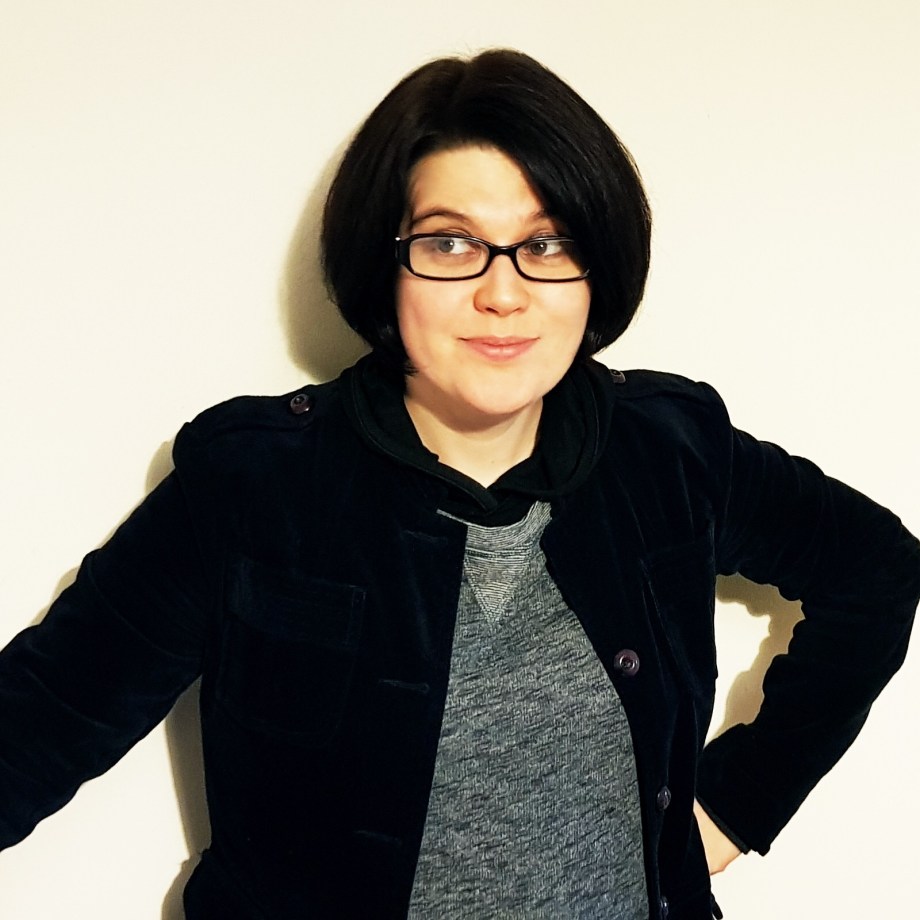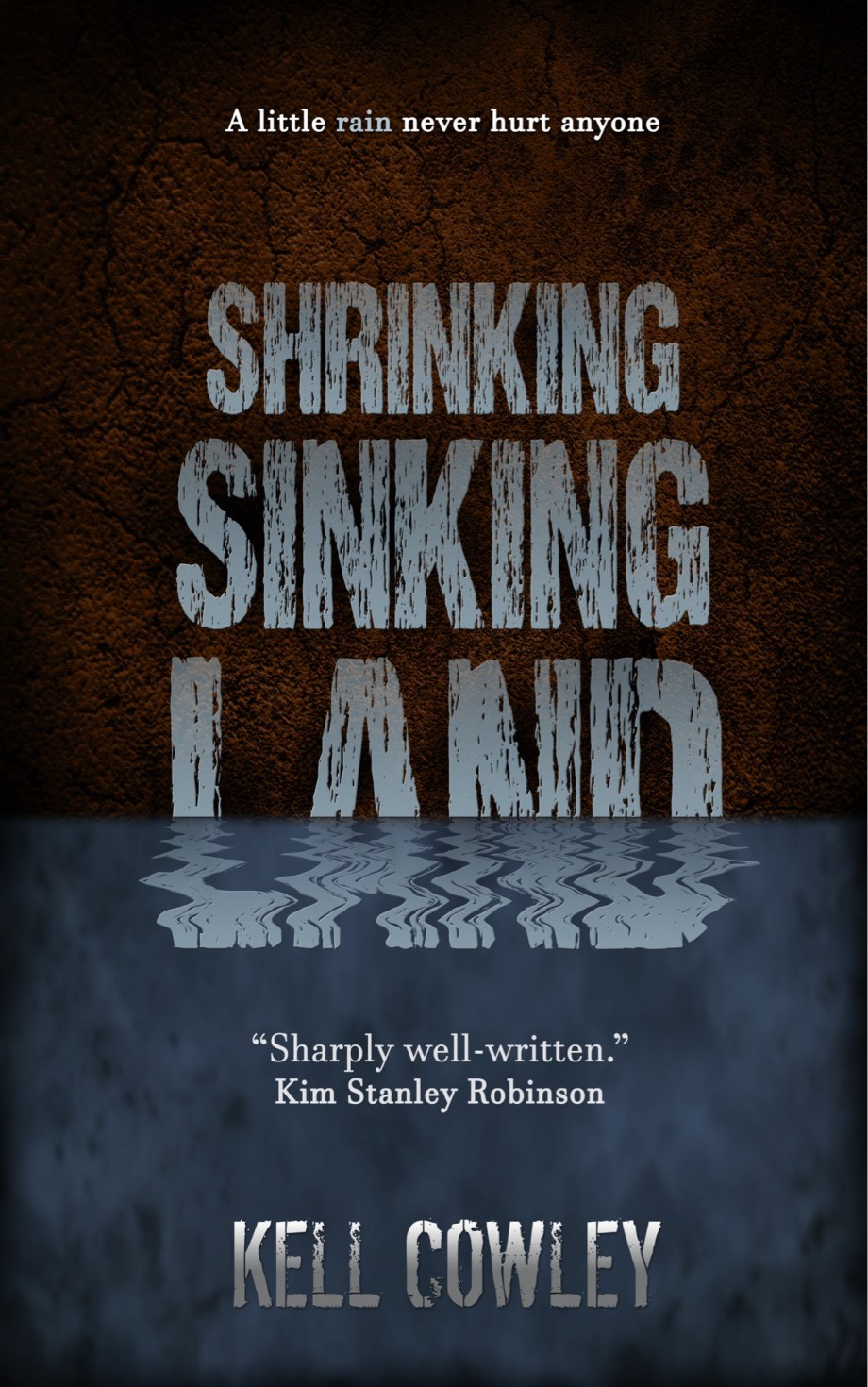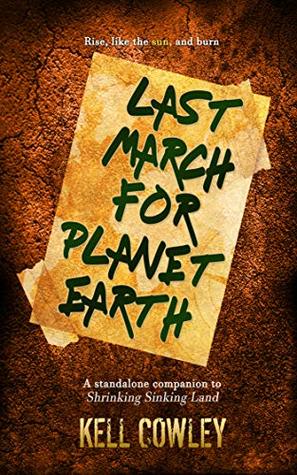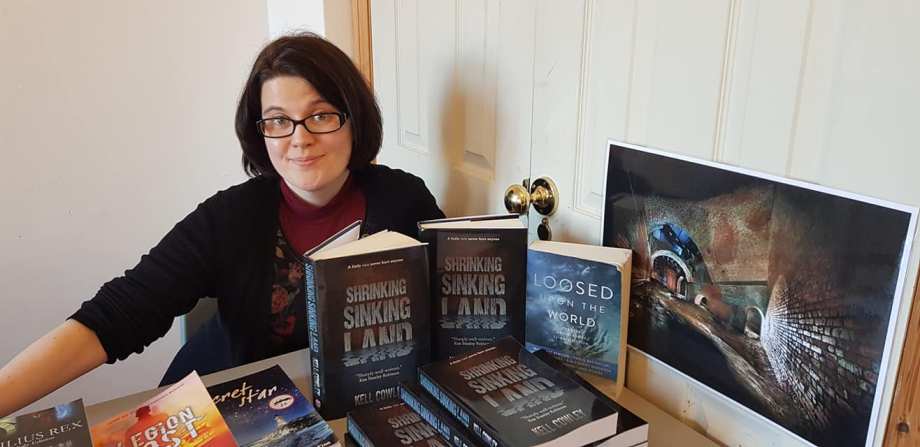MY INTERVIEW WITH AUTHOR KELL COWLEY

What genre would you consider your books to be?
For my debut novel Shrinking Sinking Land, I’m writing in a genre known as cli-fi, short for climate fiction. This is a subgenre of science fiction since its stories are usually set in the near or distant future depicting worlds drastically impacted by climate change. However, cli-fi can just as easily be set in the present day or the recent past, given the increase of natural disasters, extreme weather and droughts we’re seeing on our warming planet.

How did you get interested in writing this particular genre?
I always loved post-apocalypse fiction, long before it became a big trend in YA fiction. I was inspired to write something dystopian, but I didn’t want it to be set in a far flung future after some vague cataclysm. I wanted my story to be rooted in real world threats to civilization. Climate change and its consequences has always haunted my imagination. At first I thought of ‘Shrinking Sinking Land’ as pre-apocalypse fiction since it is set in the last week before a geoengineering experiment that will change the world and its weather forever. So I was writing cli-fi before I even knew the term. I embraced the label when I entered my first chapter into an international Climate Fiction contest run by the Imagination and Climate Futures Initiative. The competition was judged by acclaimed sci-fi author Kim Stanley Robinson and my story was a prize winning finalist, placing second in the anthology titled Everything Change.
Tell me about your book. How did you come up with the story?
The seed for my story came to me in 2014 during a particularly severe period of winter storms and flooding in the UK. I used to live in the West Country – the area worst affected – so I was watching the news each day and seeing places I knew getting repeatedly hammered by bad weather. It went on for months and it didn’t seem like it was ever going to end. So I started imagining a future Britain where relentless downpours and floods simply became the norm. Then I thought about kids growing up in these conditions and how they’d have to adapt to the constant environmental peril. That’s where my main character Flea came from, a weather warrior with a stolen umbrella. A girl so hardened to extreme weather that she’d rather brave the elements than be shut up inside.
What kind of research did you do for this book?
Writing cli-fi was a challenge for me, because I needed to educate myself on the science behind global warming, along with geo-engineering proposals which are also a huge part of my story. At the same I knew that readers wouldn’t want to be bogged down with technobabble. With this in mind, I found that I read a lot of POPULAR science books and they were the most helpful research tools because they make climate science accessible to a layman like myself. I’d recommend Naomi Klein’s This Changes Everything to anyone writing cli-fi, along with Climate Wars by Gwynne Dyer, Losing Earth by Nathanial Rich and any environmentalist article by George Monbiot. They are all very readable as well as informative.
Do you have a new book in the making and if so, what’s the name of your upcoming book? Can you give us a few tasty morsels?
The second book in my Weather Wars series is titled Every Day Above Ground, which is a reference to the old saying “every day above ground is a good day”. In the first book, the Global Mandatory Hibernation period is looming and all my characters are being forced underground whilst shady weather experiments are taking place. The sequel will be set six months later and we’ll see them trying to escape from their shelters to find out what has become of the surface world. The first book was set in autumn, while the second book will be set in spring. So it’ll be different season of extreme weather events!
Was it always meant to become a series?
Yes, I always thought I’d write more than one book. Though funnily enough, the concept for my second book came to me first. Originally I had wanted to start after the sheltering period underground. But I started to get so many ideas for a ‘before’ story so I soon realized that it had to be the first book in my series. I’ve also written a prequel novella called Last March for Planet Earth, which shows the sociopolitical history behind the Geolution that comes to pass in Shrinking Sinking Land. By the time I’m done, I’m hoping this series will be comprised of three novels with several companion novella sexpanding my world and giving a spotlight to some of my supporting characters.
How important are character names to you in your books? Is there a special meaning to any of the names?
Character names are hugely important for me. I will get blocked from writing a given character if their name feels wrong. When I came up with Felicity Wheeler, her original nickname was going to be ‘Flick’. I thought that name sounded cool and streetwise. But as I started writing, I decided Flick was too cool. Too steely and aloof. So I researched other pet names for Felicity and ‘Flea’ came up. Which was perfect, since this is a girl who is viewed as a parasite in the city where she’s sought refuge. For other characters like Dylan Moon and Breezy Jones, I wanted names that sounded catchy and celebrity-like, since they were going to be my two viral vloggers. Breezy was the one I gave a weather nickname, hinting that she’s the one calm person in the storm of my story.

Do you have any favorite authors or books that influenced your novel?
The Chaos Walking trilogy by Patrick Ness and the Unwind series by Neal Shustermanwere both very influential. I like how both those authors tell stories using multiple viewpoints and how they’ll often give their characters opposing agendas which are equally valid and understandable. Also, while their dystopian concepts often seem extreme, there are echoes of the real world in there, which make their stories feel scarily relevant. In terms of influences in the cli-fi genre, I’m a big fan of Paolo Bacigalupi’sDrowned Cities.
Is there a genre that you’ve been wanting to experiment with?
The great thing about publishing through Odd Voice Out press is that we don’t limit ourselves to just one genre. Our mission statement is simply that we want our books to represent important issues, diverse characters and unusual settings. That criteria can be met through a variety of genres. In future I’m interested in writing surreal YA novels. I was a big fan of surrealist books and theatre when I was a teenager and I love authors like Andrew Smith, Kelly Link, Shaun David Hutchinson and A.S. King, who aren’t afraid to make their YA fiction very weird. I have ideas for some strange standalone novels that I hope to write soon, if I can find gaps between working on two different series!
What are you working on now?
I’m currently working on the first book in a historical trilogy, set in the late Elizabethan era. It is called The Vagabond Stage and follows the adventures of a troupe of outlaw players. It is narrated by the young apprentice boy who plays the women’s roles and includes themes of transgender identity and bisexuality in a sixteenth century setting. I wrote two books in this series a few years back and I’m currently in the process of rewriting the first in time for a summer release. Recently I’ve been very inspired by Mackenzi Lee’s Montague Siblings novels. I love how she tells stories about queer and racial identity in a historical context in such a way that will still resonate with a contemporary reader. It’s something I hope to emulate in my forthcoming Boy Player series.

What other authors are you friends with, and how do they help you become a better writer?
My best author friend is now my business partner. I met K.C. Finn three years ago at a local audition for Midsummer Nights Dream and I was inspired not only by her prolific and diverse collection of novels, but also by her self-assurance and determination. Fortune favors the bold and K.C. is a writer who gives her all and goes after every opportunity. She’s helped me to get over my insecurities and to trust my gut-instincts as a writer. Most importantly she’s pushed me to publish and not wait around for anybody else’s permission to get my books out into the world. Aside from K.C., I’ve been a member of many writing groups in my home city and writing communities online. I think the main way writer friends help each other out is simply through empathy and comradery. Novel writing is a solitary task, so it helps to have friends who understand the slog and who’ll offer support when you’re going through rough patches.
Where can your fans find you and follow??
I’d recommend they visit the Odd Voice Out website and our social media feeds for regular updates. If they are interested in buying either Shrinking Sinking Land or its companion novella Last March for Planet Earth then both are available on Amazon. For any fans who want to keep up with me personally they can follow me on Twitter, Instagram and Goodreads where I’ll be happy to answer any specific reader questions they may have.

Odd Voice Out: http://oddvoiceout.com/
https://www.facebook.com/oddvoiceout/
https://twitter.com/oddvoiceout
https://www.instagram.com/oddvoiceout/
Amazon Links: https://www.amazon.com/Shrinking-Sinking-Land-Kelly-Cowley-ebook/dp/B07HDDNP7X/
https://www.amazon.com/gp/product/B07KDFVBVB/ref=dbs_a_def_rwt_hsch_vapi_taft_p1_i0
Kell Cowley:
https://twitter.com/kellcowley?lang=en-gb
https://www.instagram.com/authorkellcowley/
https://www.goodreads.com/author/show/15914676.Kelly_Cowley

Thank you for taking your time to do this interview ❤️

great interview
LikeLike